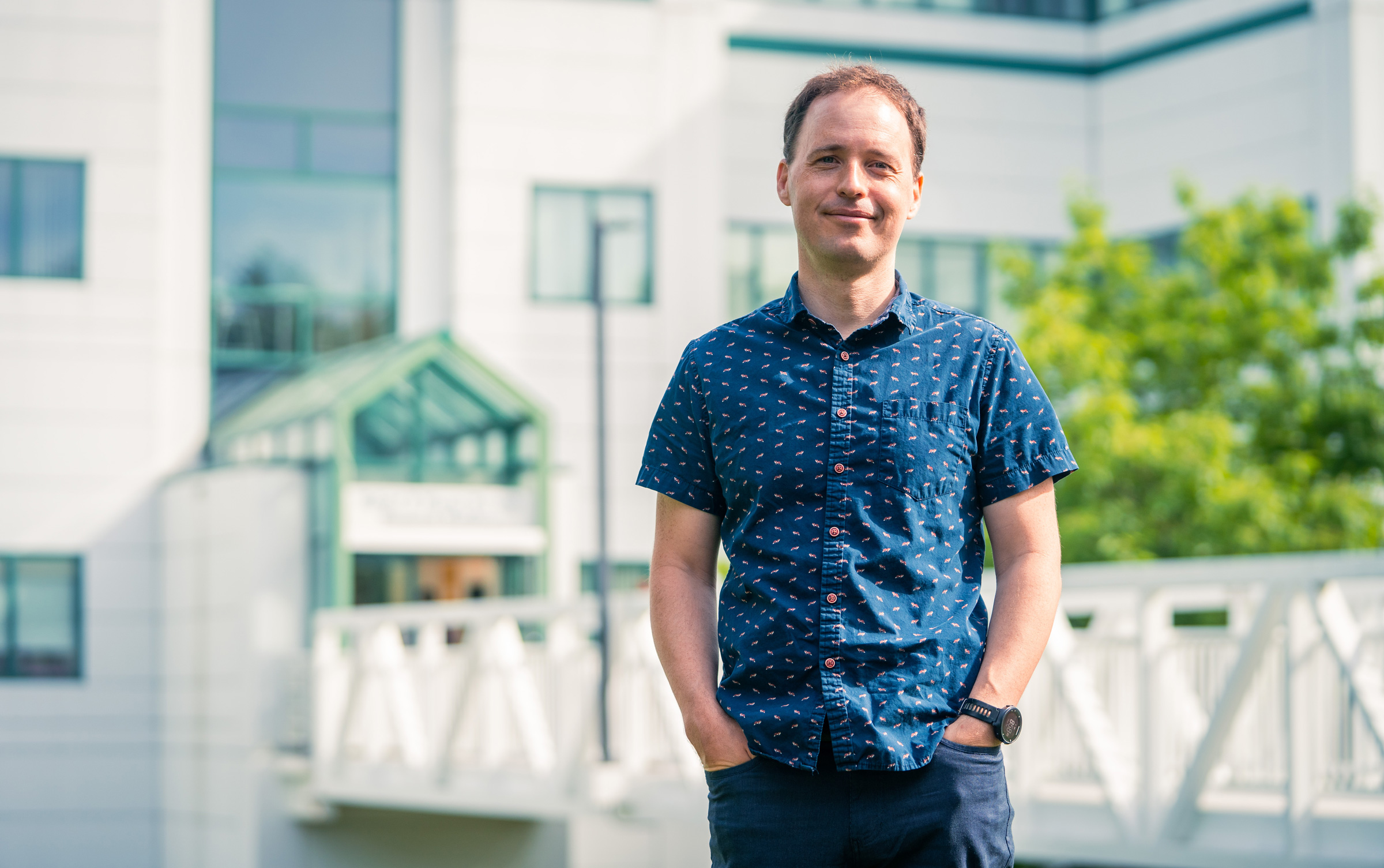
Aaron McKenna, PhD, an assistant professor of molecular and systems biology at the Geisel School of Medicine, is the recipient of a $1.5 million National Institutes of Health (NIH) New Innovator Award given annually by the NIH Director’s Office to exceptionally creative scientists proposing high-risk, high-impact research.
Created in 2007 to accelerate the pace of biomedical, behavioral, and social science discoveries that may have a significant impact on an important biomedical or behavioral research problem, the NIH award program identifies scientists with high-impact ideas pursuing highly innovative research. McKenna is among 72 early investigators to receive this year’s award.
"It's a wonderful honor to receive the NIH New Innovator Award. We started the lab right before the pandemic, so it's been hard to dream big about our scientific impact,” McKenna says. “This award asks us to do just that—to aggressively push forward our lineage technologies to better understand the evolution of cell types in both development as well as diseases such as cancer. We couldn't be more excited."
McKenna’s laboratory focuses on understanding how cells choose their fate within an organism and how these fates are linked together. The choice of what cell to become is tightly controlled, creating the proper cell type at the correct time and place within the body. Yet it has been difficult to decipher the exact combination of factors that program these fates and ever harder to create comprehensive maps of this process.
Single-cell sequencing efforts offer a potential to answer many of these questions, McKenna says, yet it’s impossible to imagine sampling every cell over the continuum of time or sampling all cells from every phenotype. “What we’ve needed is biological ‘scaffolding’, a way to link cells throughout time and space,” he says. “We’ve developed technologies that create such maps, also called a lineage tree. Lineage trees describe the pattern of cell divisions that creates every cell in an organism all the way back to the founding single cell.”
A core goal woven throughout this project is to improve the publicly available lineage tracing software—to develop tools that aim to reconstruct the full histories of individual cells from only their terminal state. The McKenna lab’s dual expertise in computational biology and molecular biology technology development makes them uniquely positioned to make groundbreaking steps in lineage tracing and molecular biology.
“Our cellular ‘time machine’ works by recording, in real-time, events and relationships into a cell’s DNA that are passed down through the cellular generations,” he explains. “Using advances in single-cell sequencing, genome engineering, and cellular modeling, we plan to dissect mouse development using both lineage tracing technologies and molecular recording systems.”
Understanding how cell fates regulates cell state is central to many questions in medicine and biology. “A number of recent efforts, including our own, have traced cell fate with lineage techniques in cancer, revealing vulnerabilities and evolutionary trajectories of the disease,” McKenna says. “Our goal is to expand these technologies to map cell relationships in normal development. We can then use these maps to better understand how diseases such as cancer repurpose normal development and how these dependencies can be exploited to improve patient outcomes.”
“The science advanced by these researchers is poised to blaze new paths of discovery in human health,” said Lawrence A. Tabak, D.D.S., Ph.D., who performs the duties of the director of NIH. “This unique cohort of scientists will transform what is known in the biological and behavioral world. We are privileged to support this innovative science.”
Founded in 1797, the Geisel School of Medicine at Dartmouth strives to improve the lives of the communities it serves through excellence in learning, discovery, and healing. The Geisel School of Medicine is renowned for its leadership in medical education, healthcare policy and delivery science, biomedical research, global health, and in creating innovations that improve lives worldwide. As one of America’s leading medical schools, Dartmouth’s Geisel School of Medicine is committed to training new generations of diverse leaders who will help solve our most vexing challenges in healthcare.